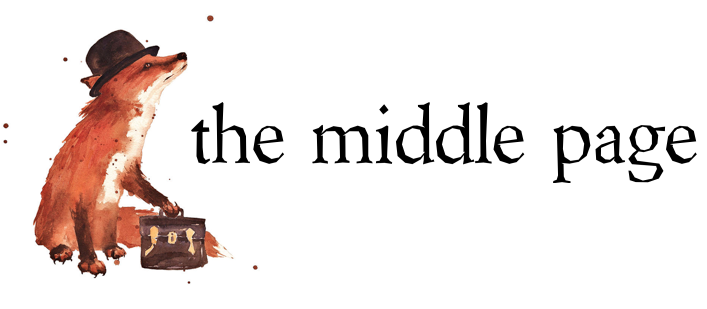| Artist Anke Eissmann |
The “irrelevances” Beowulf critics point to are the three episodes in which Beowulf fights monsters. W.P. Kerr compares these episodes with the exploits of traditional heroes of tragedy saying, “there are other things in the lives of Hercules or Theseus besides the killing of the Hydra or of Procrustes” (10). The monster battles in Beowulf are certainly the bulk of the poem and some are even told twice (once by the poet narrator and then again in dialogue). And while it is true that little else happens to Beowulf besides these adventures, Tolkien argues against their belonging in “the outer edges.” He states, “the monsters…are essential, fundamentally allied to the underlying ideas of the poem” (19). And for Tolkien, Beowulf’s most significant underlying theme is the idea that “lif is læne” (life is loan) (19). Nothing illustrates this more than the three separate encounters with monsters, for each fight focuses on the tragedy of the life cycle and of human mortality.
In his first battle with Grendel, for instance, Beowulf is a man in his prime. He is not merely fit and able, but a man with extraordinary strength and seemingly endless endurance. Grendel knows immediately “he had never encountered, in any region/of this middle-earth, in any other man/a stronger hand grip” (Beowulf lines 751-3). Beowulf’s fight with Grendel’s mother further proves he is an exceptionally strong youth. These scenes illustrate Beowulf’s strength as a man and highlights what Tolkien calls his “first achievement” (28). But they also hint at the tragedy of man because Beowulf fights not for his love of life, but for fame and to be remembered: the poet tells us “So must a man/ if he thinks at battle to gain any name/a long living fame, care nothing for his life” (Beowulf lines 1534-6). Beowulf fights because his life is loaned and he wants to be remembered after death.
| Artist Unknown |
Thanks to the Mythgard Institute and Verlyn Flieger's Tolkien's World of Middle-earth course for initiating these thoughts- in the form of an exam no less!

Interesting. I wonder if Tolkien also didn't happen to like the dragon (and other monster) parts more than these other critics.
ReplyDeleteI remember reading once a passage from some curmudgeonly critic of Homer, who complained that other critics were too much like school boys. He groused about how they liked the adventure of it. I thought that was a little sad.
Back to your post: Did Tolkien help put forward the idea that this poem is at least partly about life within a heroic code? (I know nothing about this side of Tolkien.)
Tolkien certainly had a soft spot for dragons and probably more so than the other critics, though I don't know for certain. He's certainly the only scholar I'd expect to say, " A dragon is no idle fancy. Whatever may be its origins in fact or invention, the dragon in legend is a potent creation of men's imagination, richer in significance than his barrow is in gold" (16).
ReplyDeleteI've come across some grouchy critics too (Harold Bloom on Harry Potter comes to mind), but for the most part Tolkien has a lot of respect for the critics he addresses in this essay and doesn't wholly disagree with them on some parts.
I only have this essay to go by, but I don't think Tolkien concentrated too much on the heroic code in Beowulf. Up until 'The Monster and the Critics,' a lot -almost all, actually- of the criticism on Beowulf looked at the poem as a historical piece. So there were a lot of other scholars looking at that sort of thing. Tolkien was the first to talk about Beowulf "as a poem." He talks about the poem's structure as not a narrative one, but one of balance, of "rising and settling".
The essay can be a bit tough to get through, but well worth it if the subject interests you:
http://www.english.uga.edu/~jdmevans/Personal/JRRT1936.pdf
Thanks for reading and your thoughtful response!
I'm blown away that these critics actually suggest the battles are not important. I guess it just goes to show that the mentality of myth and fairy tale as essential to truth-telling is not shared by everyone. Though, I find it hard to imagine how!
ReplyDeleteI do love Tolkien's (and Lewis's, I tend to forget he was a medieval literature professor) scholarly work.
And I adore Beowulf. It is the shining standard of a pre-Christian tragedy. As such, it is really interesting to see the Christian commentary superimposed on what is otherwise an obviously Pagan worldview--that sadness of death triumphing over all, and memory of renown and honor the only (bitersweet) victory over it. A lot of that mentality is superbly captured in Chesterton's "Ballad of the White Horse."
I also liked studying Beowulf, as an undergraduate, with regards to the cycle of hero and kingship, how one cannot hold both, though the one ins almost always necessary to obtain the other.
Yeah, I think I'm used to thinking about a history of a text (where, when, and who it came from) but not so much about the history of the criticism of a certain text. It really is fascinating when you get down to it! About a year ago I researched the production and criticism history of Sir Gawain and the Green Knight. I've been thinking about posting it here but it runs about 20 pages! It's still a very fun thing to do.
ReplyDeleteAnd it's interesting that you say Christian commentary was superimposed; I didn't know that was a theory until recently and I think it makes a lot of sense. As far as Tolkien goes, I think he believed the whole poem to be written by one person (Christian commentary and all). I don't know what to think, except that at times it seems jarring and at others it feels natural.
:)